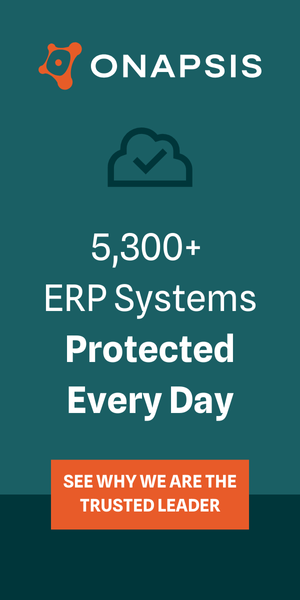Infor’s April 2025 release represents a pivotal milestone for CloudSuite customers. As the first of two major platform updates this year—the next expected in October—it delivers significant enhancements across the Infor ecosystem. While monthly updates typically focus on patches and bug fixes, these biannual releases introduce meaningful innovations that can enhance business capabilities—but also create operational risk if not carefully managed.
Key updates in April include powerful new AI and GenAI features, such as improved forecasting algorithms, AI-powered summaries in Process Mining, and a GenAI Assistant designed to streamline conversational data access. The Data Fabric platform was enhanced with improved schema synchronization and expanded query editor limits. Meanwhile, Infor Portal received fresh UI upgrades and KPI widget functionality. Updates also spanned GRC, ION, API Gateway, and BaaS, targeting performance, security, and data integration.
Real-world Risks Demand Real-world Testing
While these updates offer considerable value, they also introduce potential risks to customized Infor instances. Infor tests its standard platform extensively but does not validate your specific configurations, integrations, or workflows. That responsibility falls on each organization.
According to Gerard O’Rourke, IT Director at Fónua, an Original Software customer that chose the platform to help de-risk Infor updates, cloud ERP brings clear benefits, including continuous upgrades and access to new features with every release. “No more massive EOP upgrades every five, six, or seven years,” he said. However, he was quick to add that it’s a double-edged sword: even small changes can unexpectedly impact day-to-day operations. “Other M3 customers have expressed similar challenges and reported outages they’ve faced,” O’Rourke noted.
Without a structured, proactive testing strategy, updates become a gamble. Custom workflows may fail, third-party tools might disconnect, and business-critical processes can be disrupted. O’Rourke underscored this risk, explaining that he’s seen real examples where APIs became unresponsive, orders failed to be created, and the ability to manufacture, repair, or dispatch was halted. “Any release window could introduce a change that causes the business to stop,” he said. “It’s as simple as that.”
How to Mitigate Disruption Through Testing
With the October release already on the horizon, now is the time to reinforce your testing discipline. Even monthly service packs that contain new features require careful validation. Relying on spreadsheets, isolated scripts, or ad-hoc manual testing is no longer sufficient.
To reduce risk and maintain control, leading organizations are turning to platforms like Original Software’s ERP testing solution for Infor CloudSuite. The platform supports both CloudSuite and on-premise environments and provides the tools needed for automated regression testing, seamless integration testing, and code-free user acceptance testing. It also includes capabilities for managing manual tests and capturing business process documentation.
These tools deliver measurable business value. For example, Valmet cut its Infor M3 upgrade testing time in half—saving thousands of hours—by using Original Software’s solution. Similarly, CertainTeed has experienced zero unplanned downtime for five consecutive years while managing weekly updates through a consistent, automated testing approach.
O’Rourke said testing methodology must “show real strength” by verifying as much as possible ahead of time and providing the ability to react quickly when issues arise. He was clear on its role in supporting business continuity: “There’s no other way to provide comfort to the business that a release isn’t going to cause the business to stop.”
In today’s ERP landscape, innovation must be balanced with risk mitigation. A smart, automated testing strategy isn’t just good practice—it’s foundational to maintaining operational resilience as Infor continues to evolve the CloudSuite platform.
What This Means for ERP Insiders
Customization equals responsibility. While Infor thoroughly tests its standard CloudSuite platform, it does not account for your organization’s custom configurations, third-party integrations, or unique business workflows. It’s up to your team to ensure those custom elements remain functional after each update, therefore making a structured, proactive testing strategy essential.
Manual testing is no longer viable. Relying on spreadsheets or ad-hoc testing methods can’t keep up with Infor’s release cadence. Monthly service packs and major biannual updates require automated regression, integration, and user acceptance testing to avoid delays, downtime, or costly post-deployment fixes.
Intelligent testing protects business continuity. Platforms like Original Software offer Infor-specific capabilities that reduce testing time, minimize risk, and improve operational resilience. Organizations using automated, repeatable testing processes—like Valmet and CertainTeed—achieve faster upgrade cycles and uninterrupted service, even in high-change environments.





